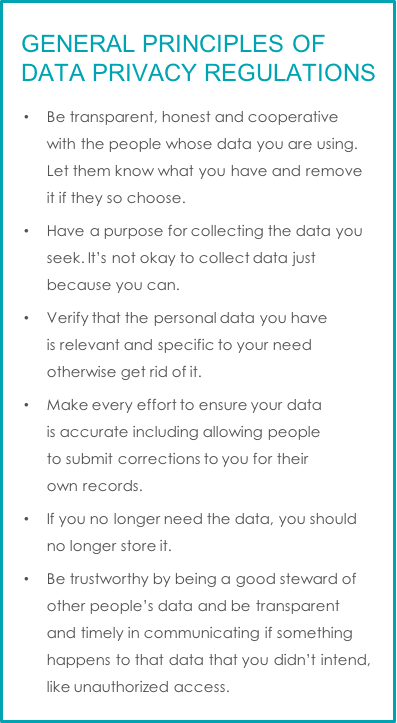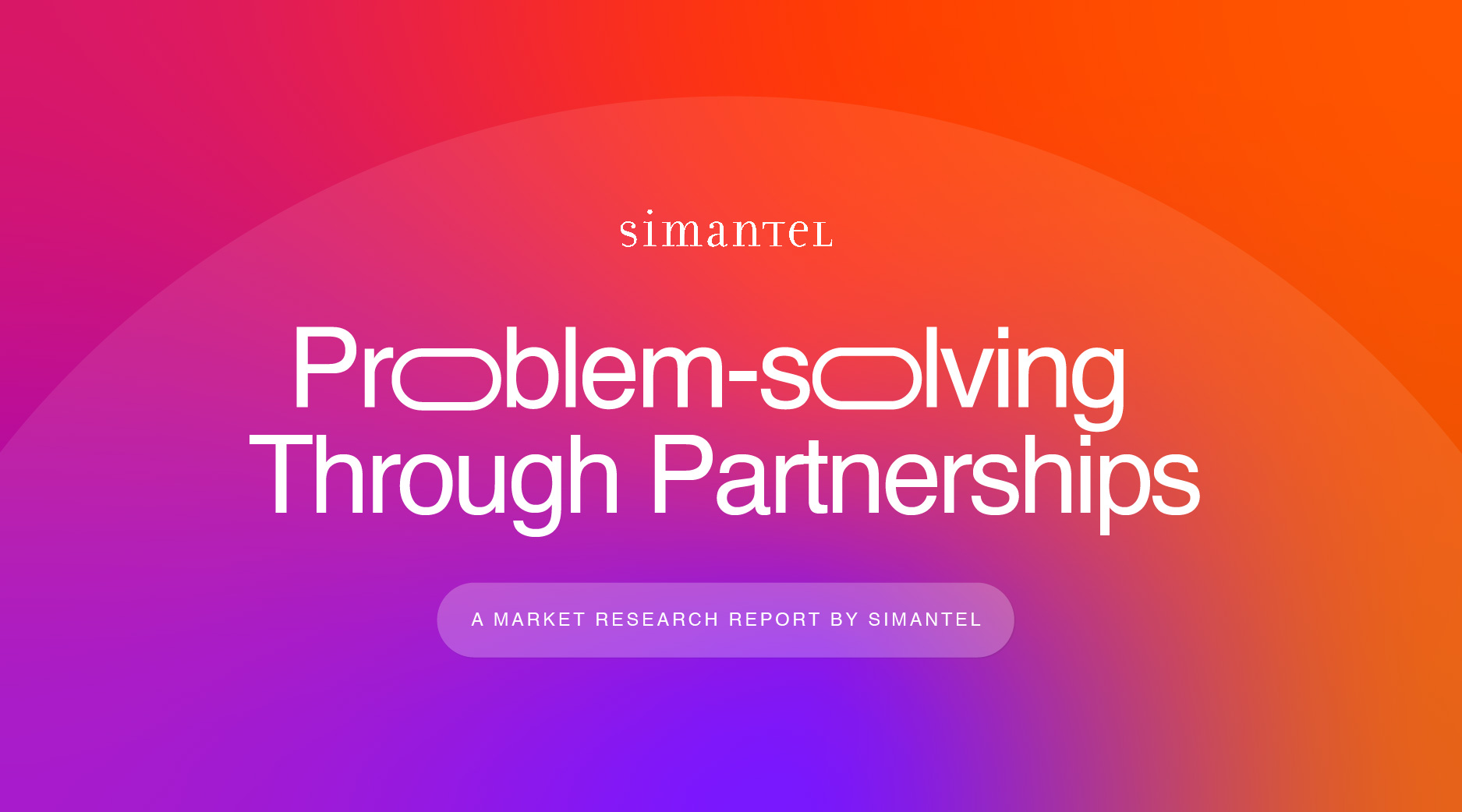Data privacy is likely a term you’ve heard before, but what you may not have noticed is that you’ve been part of the growing focus on it over the last few years. This attention has been due to a combination of newly introduced government regulations, public concern over improper use of personal data for business purposes and the ongoing threat of data breaches. To you as a consumer of online content, it has probably looked like a never-ending cascade of cookie notifications, online and offline privacy policy disclosures and other legal and security mumbo-jumbo.
You’re probably wondering, what’s the point of all of this, and does it impact me as a marketer? Let’s first take a step back and understand how data privacy has evolved over the last several years.
More than any other trend, the changing legal environment around personal data is driving more attention on this topic than anything else. While many countries have had regulations in place for a number of years, like HIPAA, COPPA and FACTA, these regulations have typically been specific and limited to certain data types and industries. However, with growing concern over data breaches, ease of data portability and the abuse of personal data by organizations like Cambridge Analytica, governments are starting to take notice and act.
Regulations That Set the Tone
So, why all the extra transparency these last few years? Hang with me for a second while I give you the background. The first broad legal framework with any significant enforcement capability was the EU’s General Data Protection Regulation (GDPR), which went into effect in 2018, followed soon after by the California Consumer Privacy Act, which took effect at the end of 2019. While neither of these laws provides protection beyond their own citizens, they are both notable for a few reasons.
Related: GDRP is in Effect. What Does It All Mean?
When we look at the volume of personal data that currently exists, a lot of it is due to the growth of Google, Facebook and other large technology companies that have collected data from their advertising operations. Most of these companies are headquartered in California and conduct extensive business in the European Union. Also, it isn’t always obvious who you may be collecting information from in an online environment at any given point in time.
This has left many companies trying to apply a broader approach to adhere to these GDPR rules — meaning even if you don’t live in the EU or in California, your data is likely being handled as if you did. That’s why you’re seeing so much more transparency around when your data is being collected and what is being done with it, even if there isn’t data privacy protection provided by your government.
 Watch for New Legal Frameworks
Watch for New Legal Frameworks
In the United States, California has led the way so far in setting forth data privacy protections for its citizens, but there are several other states that have minimal protections on the books or are looking into new, more comprehensive legislation. This will certainly be an area for marketers and martech companies to watch.
Should the federal government not take action on an overarching privacy framework, we might end up with a patchwork of state-by-state regulations, which will complicate how data can be handled across different political boundaries. If that doesn’t happen, you can expect even Google and Facebook to lobby for federal legislation — something they haven’t advocated for historically, but it would probably be better than trying to apply more than 50 different legal frameworks to their users across the United States.
Focus on CX and the Golden Rule
So, do these laws mean marketers should be leery about using personal data? No, not necessarily. If anything, it increases the importance of a well-thought-out customer experience. It’s unlikely today that someone can have an experience with a brand that’s purely offline in its totality, so when talking about providing a positive customer experience, it’s imperative that we also talk about data privacy.
Make sure what you do with data delivers value to the customer, and make sure they’re aware of how they stand to benefit by sharing their data with you. By avoiding the use of incorrect data, you will also avoid providing the wrong experience to a customer, possibly saving their relationship with you. It might sound oversimplified, but it’s almost as if the goal of a good data privacy program is really as easy as following the Golden Rule: only do with others’ data what you would want done with your own.
Related: 4 CX Trends to Know About
Looking Ahead
The world of data privacy is changing as fast as the technology that facilitates it and the legal environment that oversees it. This isn’t a topic that is likely to lose steam anytime soon. As consumers continue to become aware of the role their data plays, calls for protections on the use of that data will continue, too.
Many in the advertising industry are trying to get ahead of these changes by adapting their approach now and preparing for a cookie-less future. Several of the largest web browsers offered by the likes of Google, Apple and Microsoft are limiting the use of cookies, and it might even be the case in the future that they’re blocked outright. What is for sure is that changes in data privacy will continue to push strategists and technologists closer together to effectively, legally and transparently use customer data in the future.
As a full-service marketing firm, it wouldn’t be right to provide technology and marketing automation solutions without closely monitoring the landscape and implementing data privacy measures. We will continue to bring you more information. Registration is now open for our July webinar, Living in a Data Privacy World, a free live webinar where you will learn more about data privacy and why it’s important for your brand.





